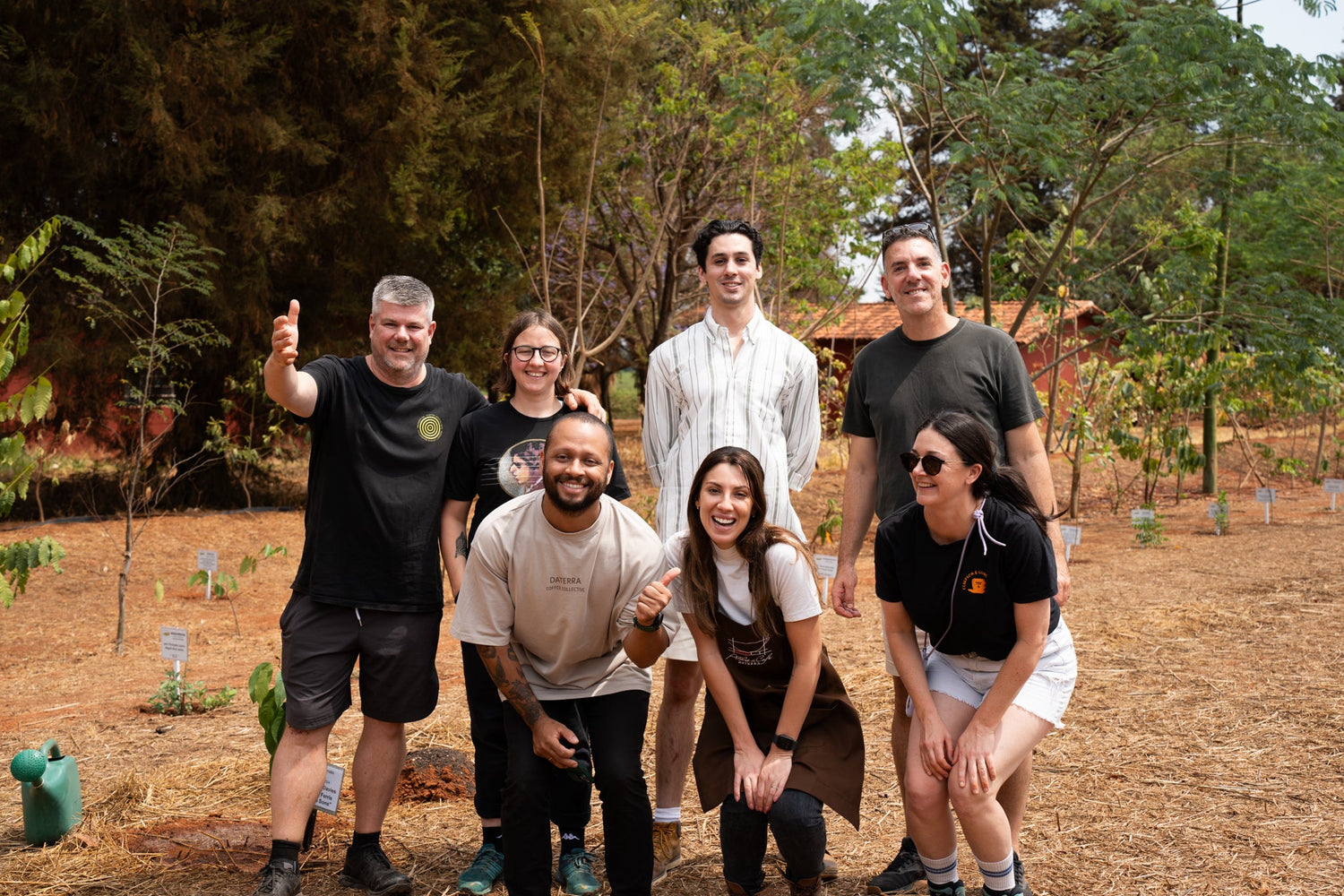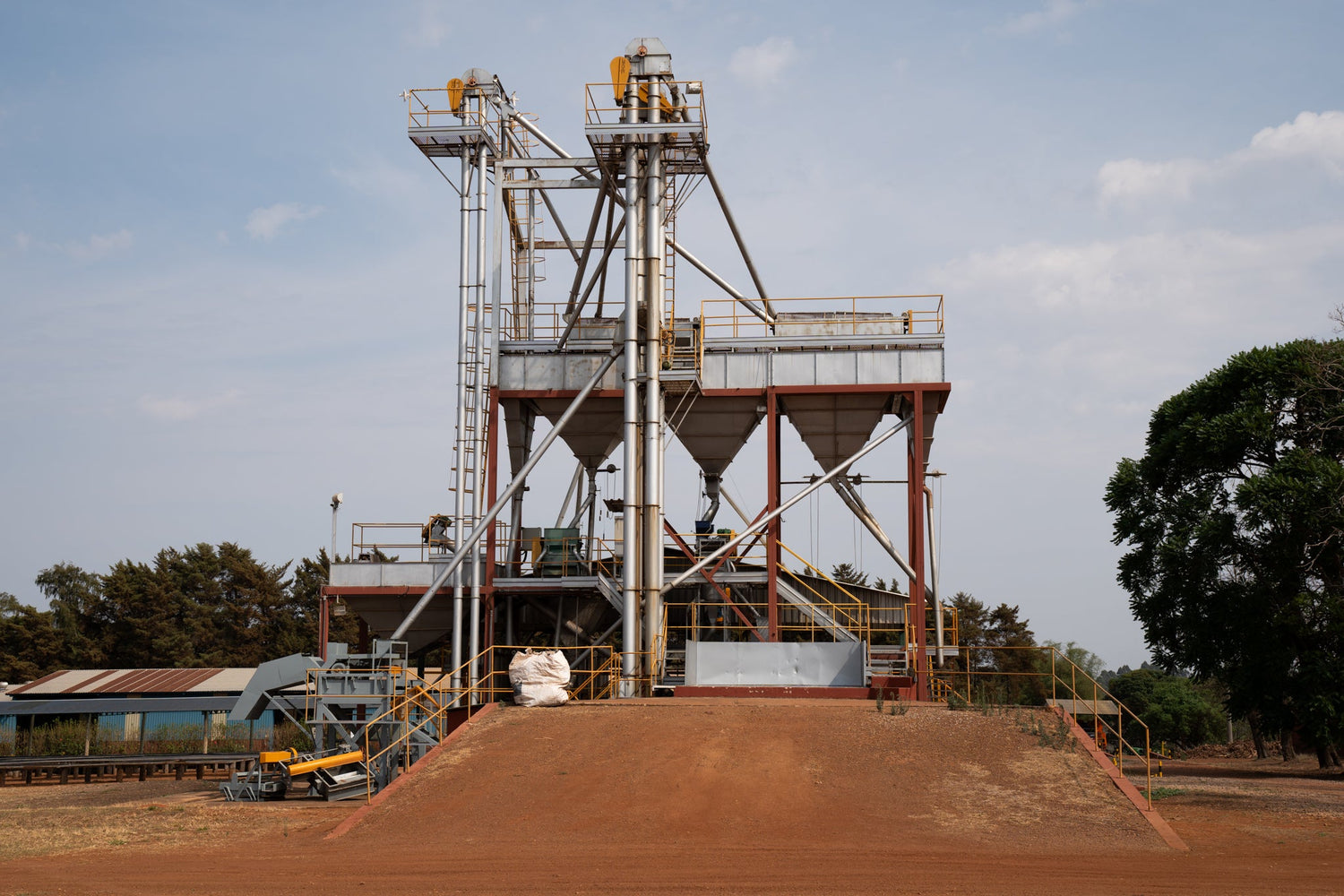Shirani Gunawardena and Christian Steenberg began Indochina Coffee in 2015 when living in Bangkok, redrawing the speciality coffee map to showcase South East Asian coffees in the UK and Europe. Building relationships with coffee producers through Myanmar, China and the Phillipines, we’ve worked with these two over the last few years to bring the best of the region's speciality coffee to Climpsons, including our most recent edition of The Fields - Ywangan from Myanmar. After working in equality, human rights and social justice, Indochina strive to ensure fairness and transparency across the supply chain, staying true to the Climpsons ethos of developing long-term, sustainable relationships with farmers and producers.
We’ve had the chance to pick Christian and Shirani’s brain on what it means to be an ethical coffee business in 2020 and what to expect from the region in the coming years.

Prior to importing coffee, you both had experience in social justice and human rights - how does that influence your approach to green coffee importing?
It’s really the reason we got into this business in the first place, as we’re able to play a part in helping to build sustainable livelihoods for coffee farmers and producers in Southeast Asia by opening up the market to roasters here in the UK and Europe. We are a small family business and our focus is on creating long term and respectful relationships with the farmers and producers we work with, rather than simply acting as importers and wholesalers of green coffee.
What does responsibly traded coffee mean to you, and can you give an example of this in action?
It means building relationships with coffee farmers and producers, and sticking with them. We know how devastating it can be for farmers to be let down by broken promises. We visit throughout the year to maintain and strengthen our relationships. Four years on and we’re working with the same people who we started with: Mandalay Coffee Group in Myanmar and Yunnan Coffee Traders in China. We’ve grown as they have grown. We must thank Climpson & Sons for, in turn, sticking with us from the very beginning!
What does an ethically minded coffee business look like in 2020? And is there an opportunity to do better in the coffee supply chain - from producers to importers and roasters?
Transparency is a word that’s thrown around a lot in the specialty coffee industry, to the point that it’s in danger of becoming meaningless. Our take on it is that context is key. For example, specialty coffee export in the countries we work in is only a few years old. To expect full breakdowns of cost of production from a smallholder who’s essentially a subsistence farmer growing coffee among a bunch of other crops is simply unrealistic and often unhelpful. As importers, we need to be clear that we act as the bridge between roasters and producers, it’s a very privileged and responsible position to be in – taking the time to listen and explain where everyone is on their journey, what their challenges are and where they’re hoping to get to is vital to keep the relationships beneficial for everyone.
How can consumers do their part?
There’s no harm in asking some questions! Who do you buy your green coffee from? What is their connection to the farmer and producer? What do you really mean by direct trade? If you’re happy with what you hear, stick with the roaster. And lobby them for more Southeast Asian coffees!
And finally, are there any distinctive characteristics that we should look out for in coffees from China, Myanmar, and the Philippines?
This is a huge question! Farms are beginning to experiment a lot more on the processing side of things, particularly as they now understand what consumers in the UK and Europe appreciate. In terms of distinctive characteristics, sparkling washed and fruit-forward naturals from Myanmar are gaining something of a reputation – as are the funkier, fermented naturals from Yunnan. Specialty production in the Philippines is small but increasing, as is the focus on improving quality, so the potential there is huge and it’s very much a watch this space. But we’re also seeing more subtle, elegant coffees from each origin beginning to emerge and that’s really down to the developing confidence of producers. New varieties in Yunnan should be coming through in a few years’ time which is very exciting for us, maybe you will see some in Climpsons around 2024!
We're showcasing 2 great Myanmar coffees from Indochina, grab a bag of Greenland or the current edition of The Fields - while stocks last!




